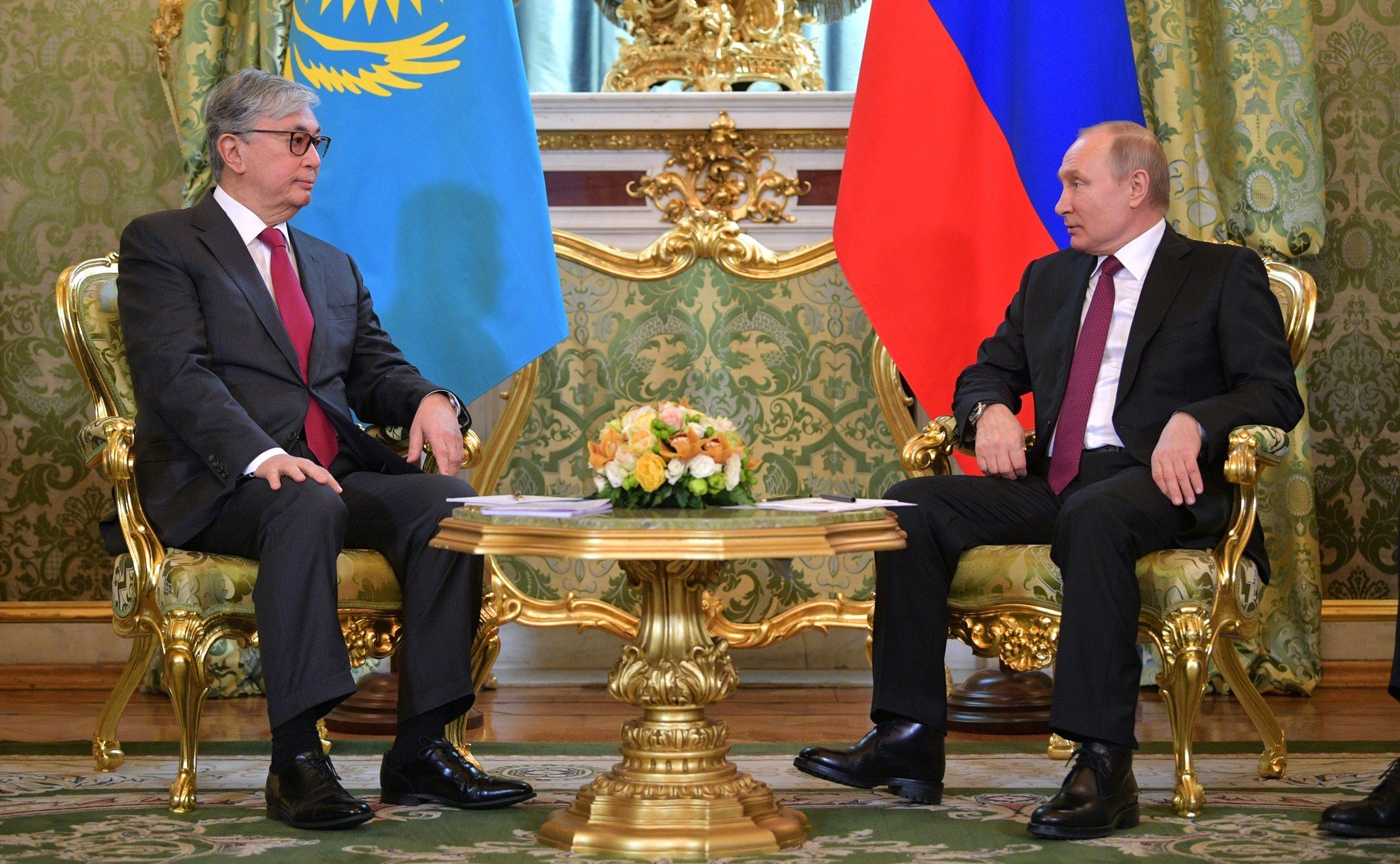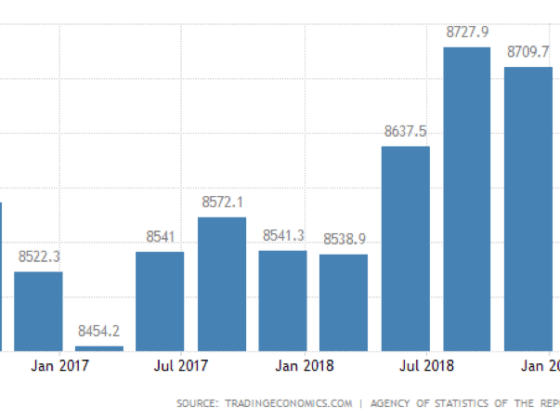The Elections and Kazakhstan’s Foreign Policy: Continuity But For How Long?
Foreign policy was not at center-stage during the 2019 presidential elections in Kazakhstan. The main candidate, Kassym-Jomart Tokayev, selected by Nursultan Nazarbayev and endorsed by the ruling Nur Otan party, pledged to continue the “multi-vector” pragmatic balancing approach practiced for three decades of the country’s independence. However, a closer look at the programs of other candidates and the statement by the ad hoc People’s Assembly (Halyk kurultayi) movement reveal views on a desirable foreign policy and ways of interacting with the world that diverge from the official one.
Candidate Tokayev’s Take On Foreign Policy
Two out of seven presidential candidates articulated foreign policy approaches in their platforms—Kassym-Jomart Tokayev and Amirzhan Kosanov. Tokayev predictably won the elections. Kosanov, in a major surprise to many, including himself, gained a respectable 16 percent of the vote.
Tokayev has been in the higher echelons of power since early independence. He is a trained diplomat who twice served as Kazakhstan’s Foreign Minister. Thus, Tokayev can be described as the shaper and executor of the country’s pragmatic “multi-vector” foreign policy composed of balancing partnerships with great powers—Russia, China, the U.S., and the E.U., and integrating the national economy into regional and global markets. Despite his special expertise in international affairs, his election platform does not contain foreign policy, it just states continuity with the current policies developed by Nazarbayev, further strengthening the strategic partnerships with Russia, China, the U.S., Central Asian states, the E.U., East Asia and the Middle East, and attracting foreign investments.
Prior to the elections, in his capacity as interim President, Tokayev made an official visit to Moscow. He was accompanied there by the most powerful figures in Kazakhstan’s political scene, such as the Chair of the National Security Committee Karim Massimov. The goal of the visit was to show respect to the state’s most important strategic partner and possibly reach some agreement on a power transition.
In the meantime, Nazarbayev visited Bejing for the 2nd Belt and Road Forum, serving as some sort of “proxy” of the new president.
At the end of May, Tokayev had a meeting with the President of the European Council Donald Tusk touring the region in the aftermath of the adoption of the new E.U. strategy for Central Asia and assured him of Kazakhstan’s determination to deepen relations. Nonetheless, his government’s highly problematic conduct during the elections which consisted, of electoral manipulations, an Internet blockade and mass arrest of protestors and random passersby, mire these prospects.
Candidate Kosanov’s Take On Foreign Policy
Unlike Tokayev, Kosanov does not have much expertise in foreign affairs. He is a journalist by training. In 1994-97, he served as Press Secretary of Prime Minister Akezhan Kazhegeldin (currently in exile), and since then he has been in various democratic opposition movements and parties. However, despite the lack of expertise in the area, he provides a more concrete set of ideas. Kosanov proposes to make the European Union as the main vector of Kazakhstan’s foreign policy. He does not explain this choice, but it logically links with his central agenda of the promotion of human rights and democracy. It can also be traced to the platform of the 2005 united opposition presidential candidate Zharmakhan Tuyakbay that also defined the E.U. vector in Kazakhstan’s foreign policy as its main goal, as it was the best fit for providing long-term security and prosperity of the country.
Kosanov insists that all international agreements and treaties should be open to public scrutiny and suggests reviewing all agreements with transnational corporations on the use of natural resources. The latter is a populist demand that has been a staple of opposition across the spectrum from left to right. He adds to the demand to stop the practice of receiving “uncontrolled” foreign credits. This can be interpreted as a reference to China, the primary source of loans over the past decade.
Kosanov’s other demand and promise is to provide for national, military, economic, ideological, and information security of Kazakhstan and make the country truly independent. The economic, ideological and information security of Kazakhstan is usually discussed in the context of its relations with Russia. There is discontent with the leadership’s decision to join the Customs and Eurasian Economic Union with Russia. It is perceived as undermining the country’s national interest. There are also concerns about Russian media dominance in Kazakhstan’s information space and the Kremlin’s capacity to carry out hybrid warfare.
Thus, Kosanov’s foreign policy section is inspired by a mix of liberal democratic ideals and nationalist sentiments. It is not a developed policy program, but it contains linkages between domestic and foreign policy not characteristic by the Nazarbayev-Tokayev’s approach.
Vox Populi: People’s Assembly Resolution
Kosanov’s temperate agenda allowed for his inclusion in the elections as an alternative candidate, which made him a proxy for the protest vote. More radical opposition representatives did not have this chance. However, we can find their discourses outside the formal campaign. An important outlet for more radical views was the ad hoc People’s Assembly (Halyq kuryltayi) that gathered hundreds of activists from different parts of the country to discuss the elections. It featured such high-profile participants as cosmonaut and former deputy of the Majilis of the Parliament Toktar Aubakirov and former Secretary of the Security Council and Deputy Prime Minister Baltash Tursumbayev.
The Assembly adopted a resolution that included demands for political reforms, but also a legislative ban on selling and renting land to foreigners, a resolution on the situation with ethnic Kazakhs in Xinjiang, a limit on economic and trade relations with China, and the rejection of investment and credit from China. Fear of China’s growing presence and influence, and anger at the mistreatment of Kazakhs in Xinjiang, have been increasingly hot issues across the country. In 2016, Kazakhstan saw protests against legislation extending the term of land rent to foreign-owned companies that resulted in the government’s moratorium on it, until the end of 2021.
Concluding Remarks
During the first three decades of independence, Kazakhstan’s foreign policy was shaped by President Nazarbayev. It was driven by geopolitical considerations and neoliberal ideals of economic development. The elections and debates surrounding them give a taste of the growing linkages between domestic and foreign policy. Foreign policy issues play a more prominent role in local politics, and efforts to keep control over an increasingly awake society negatively affect Kazakhstan’s international reputation. If domestic politics becomes more competitive, the continuity of Kazakhstan’s foreign policy should not be taken for granted.











